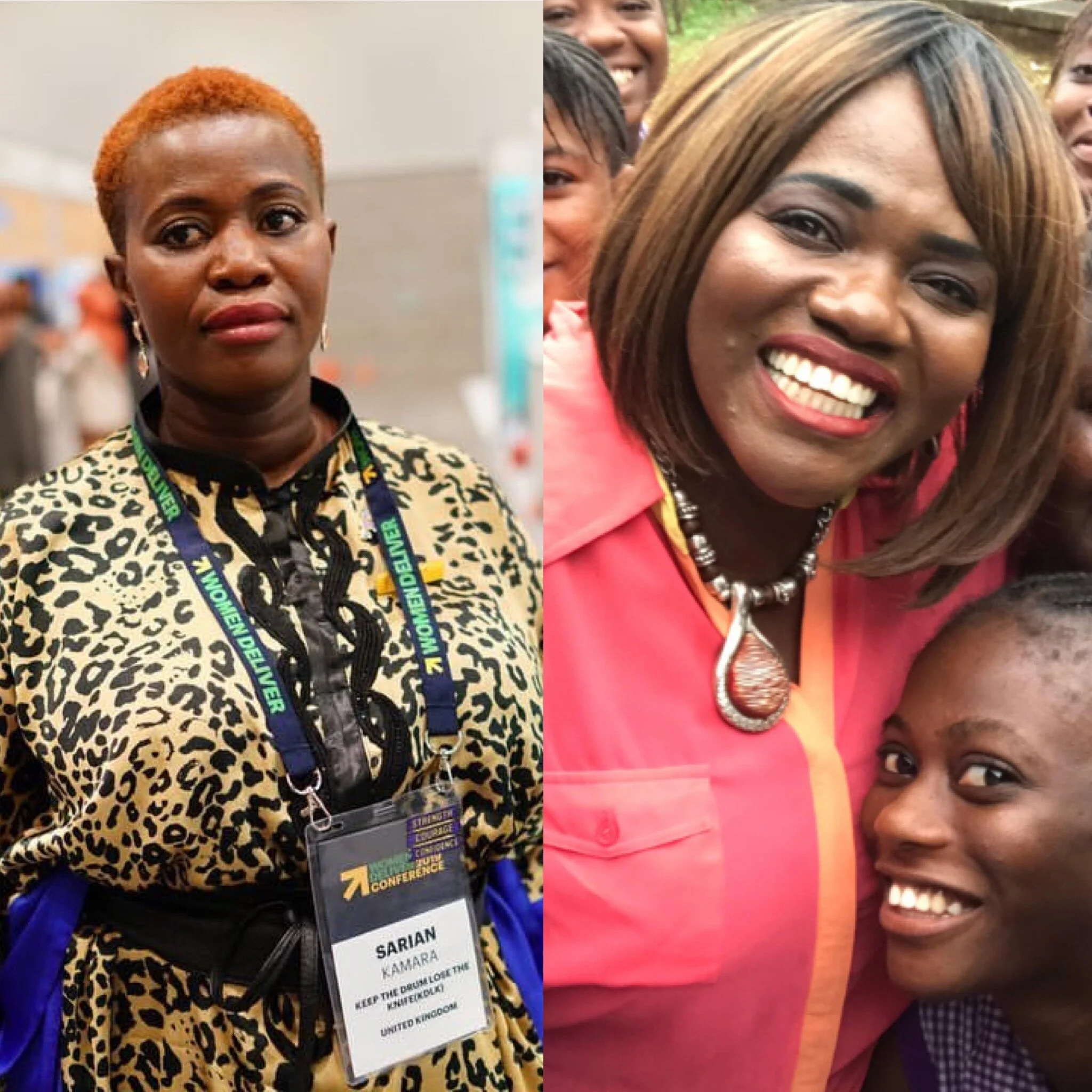Once child brides, Sierra Leonean women are going back to school to learn new skills
When child brides become abandoned wives in Sierra Leone they rebuild their lives by learning new skills.
On Kendeyama Junction, in Bo, there is a blue and green tarpaulin-covered tent overlooking the highway. It is the workshop of Isata Sillah. Every day for the last three years she has set up shop with her loom and threads to weave “country cloth”.
She works with her son and two other trainees and they have customers in Bo, Freetown, and in the diaspora. To make the comb and the “nee-nee” the cord of the loom she goes to the bush herself to find the tools. One country cloth shirt, with embroidery, can cost up to SLL 250,000 ($25), and business is good.
“It is out of this weaving that I paid for my children to go to school. My daughter has just graduated from Njala University,” said Sillah when I interviewed her last December for The Vickie Remoe Show.
She was born in Pujehun District and went to secondary school up to Form 4 until something terrible happened.
“It was my grandfather who took me out of school and gave me up for marriage. That time there was no law. It was not like it is today”, she said making reference to the country’s Hands Off Our Girls campaign to end child marriage and sexual violence against minors.
Four out of every 10 girls in Sierra Leone are married before the age of 18 according to UNICEF. And the country is 13th in the world for teenage pregnancies, for every 1000 births 113 are born to teen moms. What drives these transactional marriages and sexual relationships is poverty, either the lure of the bride price or financial support from a man considered to be of better means.
Sillah was a child bride. Her marriage produced five children. But suddenly 10 years ago her husband left. When she got over the shock of her departure she joined an 18-month weaving training school.
“When I was training I didn’t know how to weave. Even after the program, I didn’t know but once I set up for myself, and started to practice, I got better over time. Now I make my own designs and have a tailor who sews and embroiders for me,” said Sillah.
Her venture into micro-entrepreneurship would not have happened had her husband not left. The irony is that families give their daughters to older men for marriage in exchange for financial security but there are no guarantees that the men will provide or that they’ll stay.
Salamatu Dauda, 24, another weaver from Pujehun, also married young. After she had two children, her husband left. She said it caused her lots of stress but today she is better off.
“I went to Opportunities Industrialization Centre (OIC) to learn this job, my friends didn’t think I could do it. My husband wasn’t supporting us after he left me, that’s why I went to learn. Now, my kids, my brothers, and sisters are in school,” said Dauda
Dauda is a weaver with Country Cloth Dot Org, a cooperative of weavers that sell their products online. Spousal abandonment is what made her learn a new skill. Both Dauda and Sillah have overcome the loss of their childhood to marriage and survived the departure of their husbands but there is something much worse than being a child bride, and in Sierra Leone, that is being a single pregnant teen.
Teenage Pregnancy & Education for Empowerment
If teenage pregnancy is considered a medical risk then certain girls are predisposed to it than others. In Moyamba in the Southern Province, three recipients of a scholarship fund for teenage moms had little or no social and family support before, during, and after pregnancy. All of the girls live with a female relative without their parents. Their only hope for education was the Peagie Woobay Scholarship Fund. Founded seven years ago, the organization provides safe spaces, financial support, and free daycare services for the children of teen moms.
“My mother is dead, my father is dead, if not for Peagie’s Initiative I would have just stayed at home and not had the chance to further my education,” said Lumbe Sillah who became a single mother in 2015. She is a 21-year-old second-year student in Junior Secondary School.
“The reason why we end up like this is because of poverty. You don’t have anyone to give you 5000 Leones then an older man offers you 15,000. You just have to become his girlfriend”.
Lumbe’s one-time boyfriend is long gone. She knows where he lives but he provides no child support.
“He doesn’t care. It’s just me.”
Sierra Leone has committed to the Sustainable Development Goals but on SDG5-Gender Equality which includes the elimination of child marriage by 2030, it is not on track. Last year the government set up a Sexual and Reproductive Health Task Force to among other things develop pro-girl best practices as it reviews a five-year-old policy that banned pregnant girls from school. The goal is to put girls first amidst public fear that teen moms not only choose pregnancy but that they influence other teens to make the same choice.

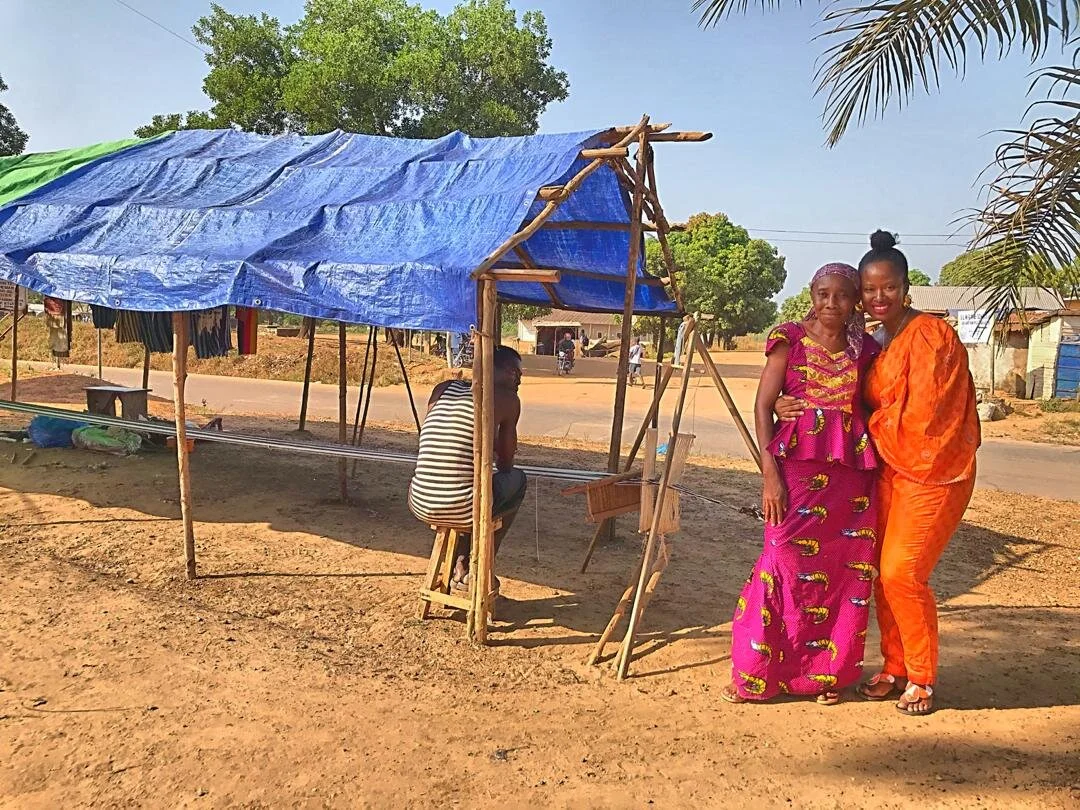
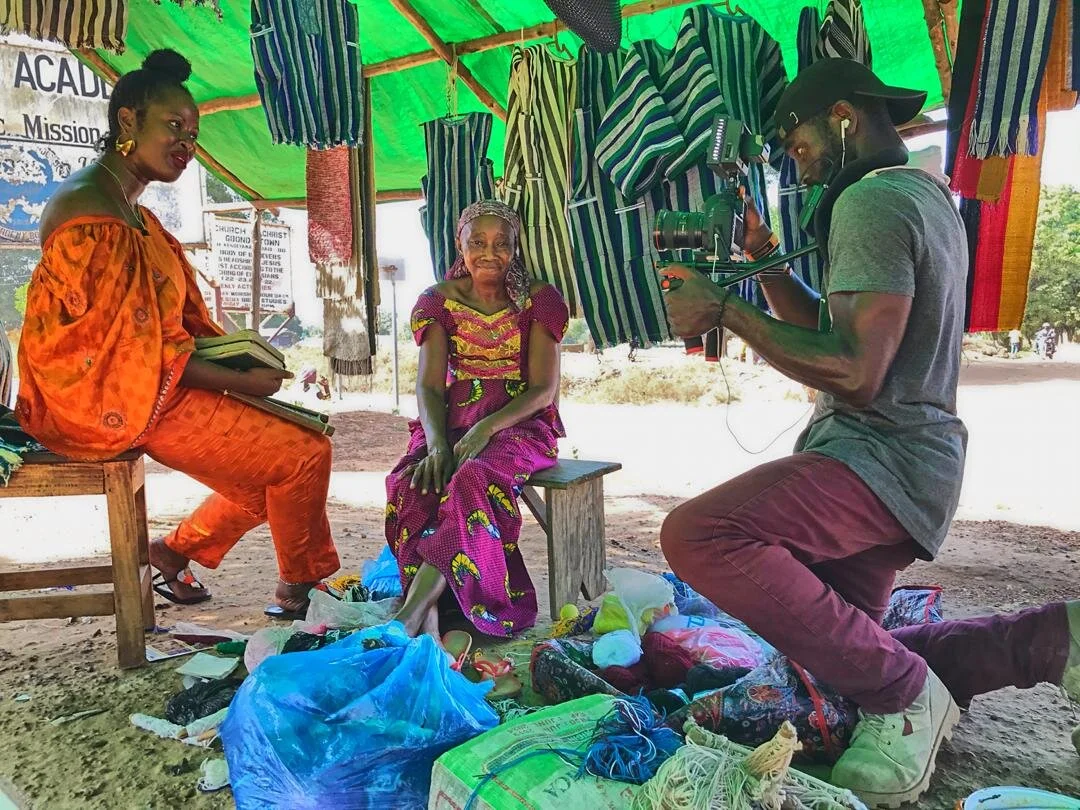
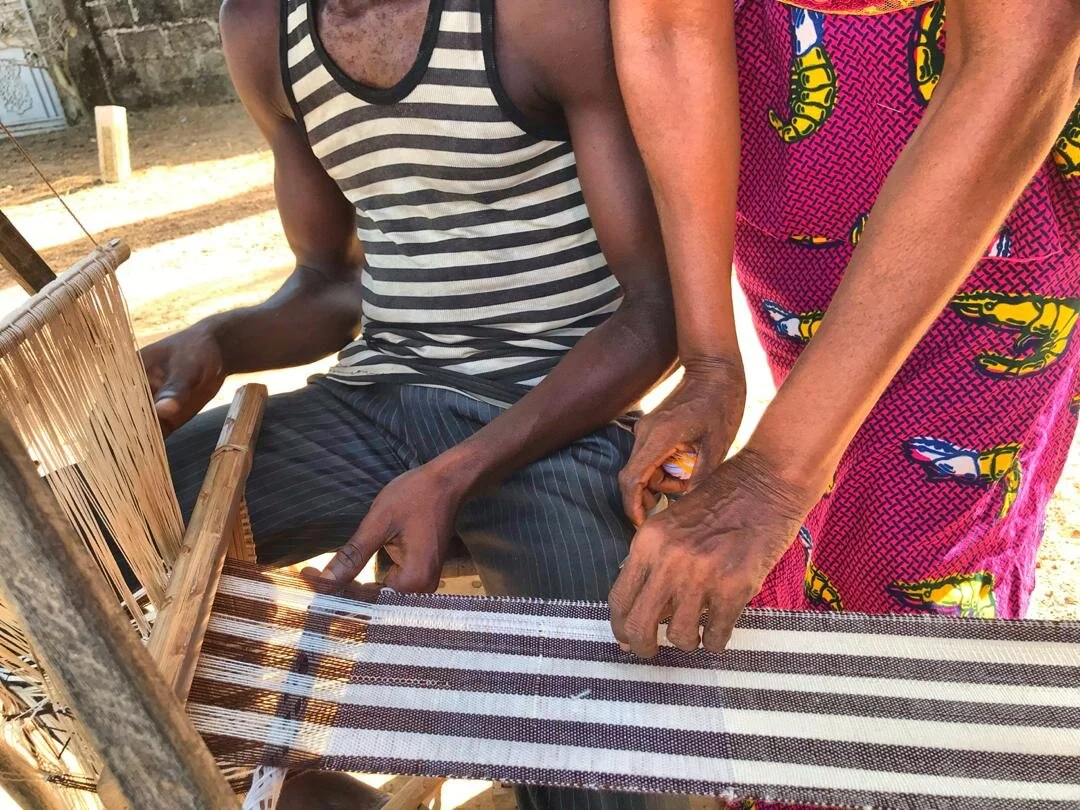
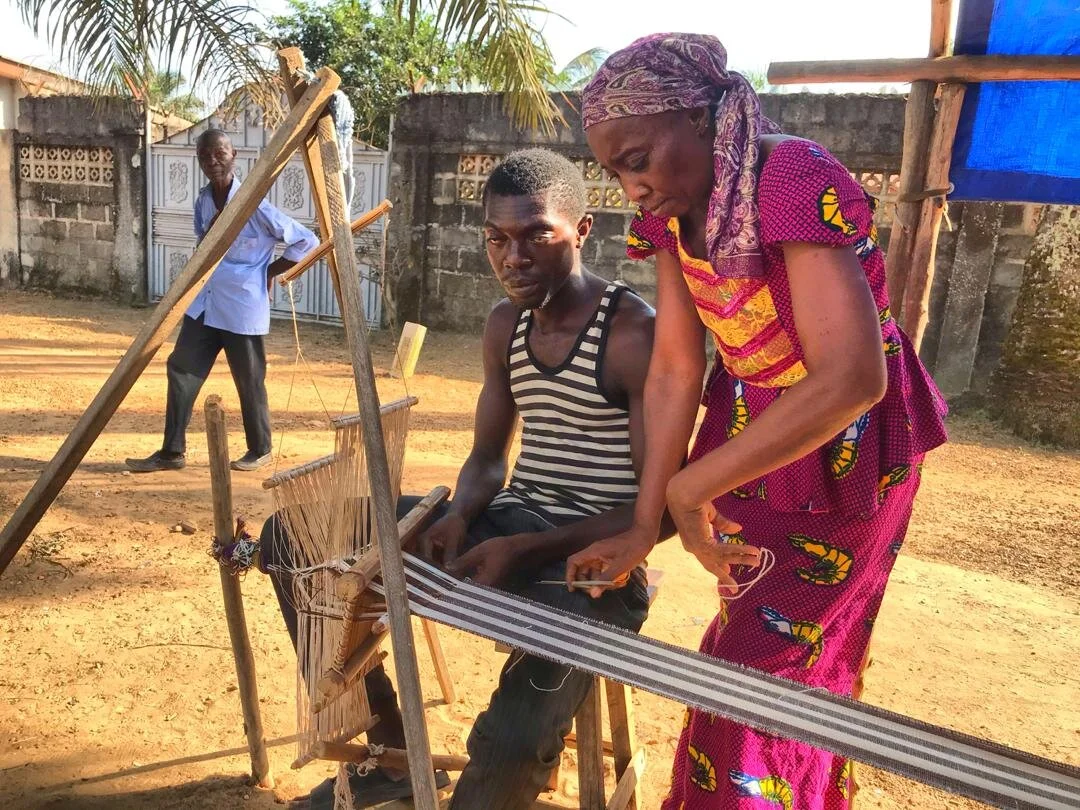
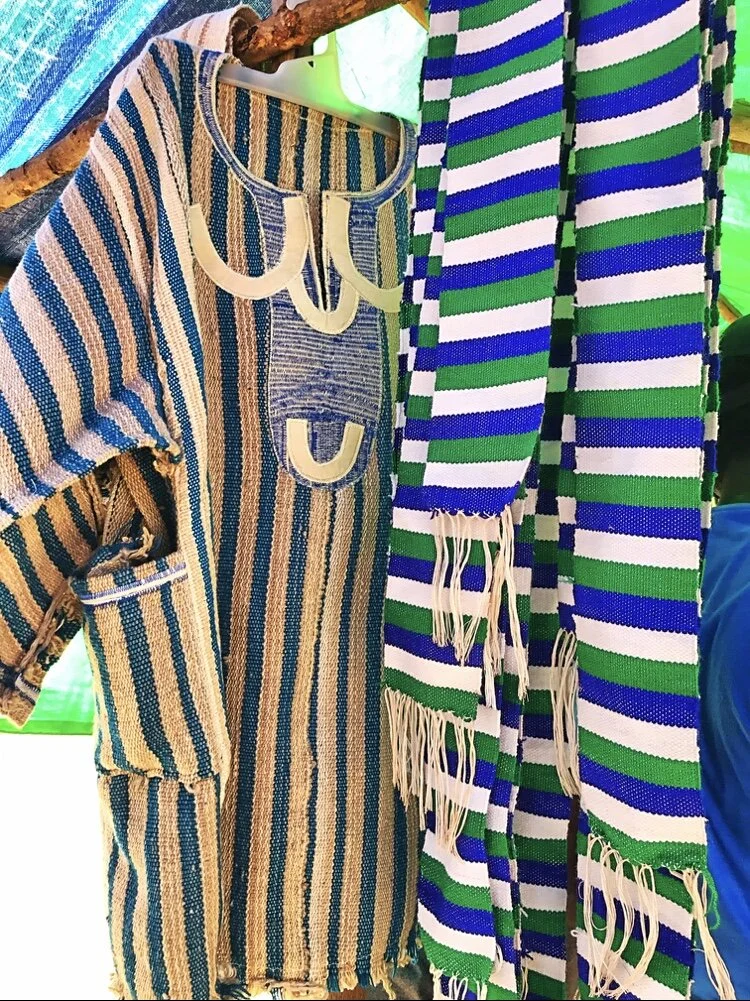
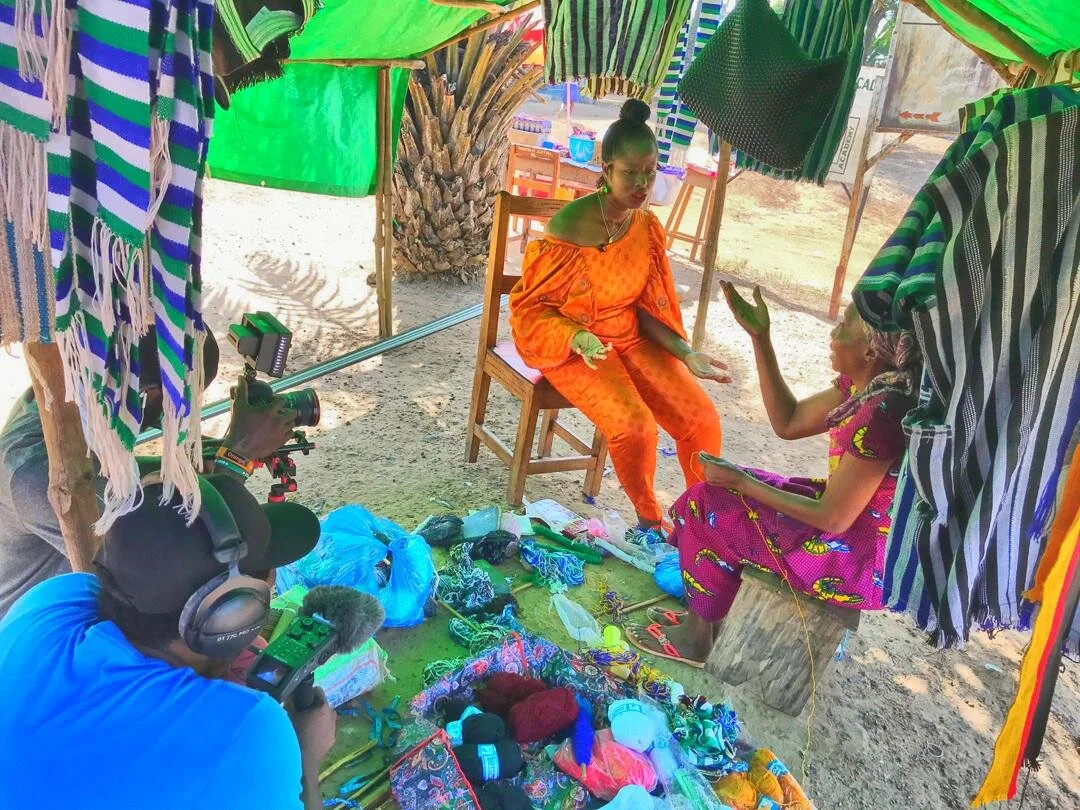

!["We need 'period empathy' for girls in school and women at work!" - Vickie Remoe on BBC Africa #TheSheWord [Video]](https://images.squarespace-cdn.com/content/v1/58e24f343e00be0ae513d74f/1582487275433-3HRU2UPPD264ARXMMTGO/vickieremoe-sheword-bbc-sierraleone-menstruation-periodstigma-womenshealth.PNG)
